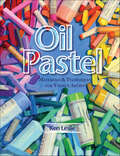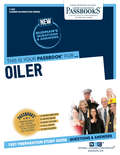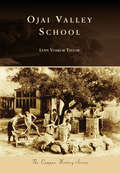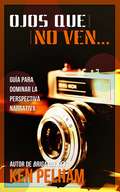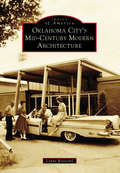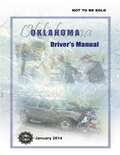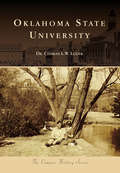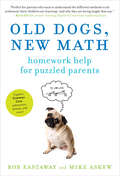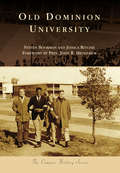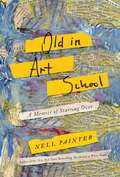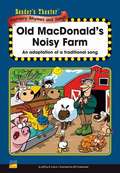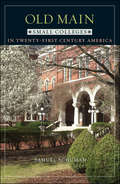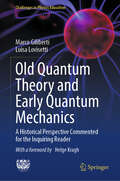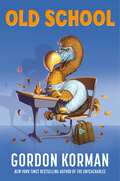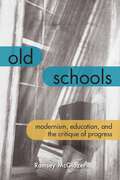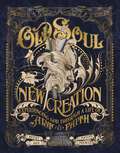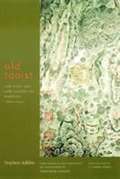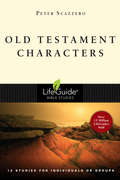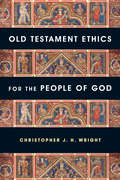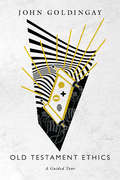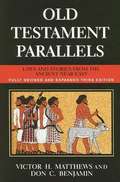- Table View
- List View
Oil Pastel: Materials & Techniques for Today's Artist
by Ken LeslieFinally back in print for a new generation of artists, Ken Leslie's Oil Pastel is the definitive instructional resource on this wonderfully rich and versatile medium. Vibrant and portable, oil pastels are ideal for making quick sketches, producing stunning finished works, and make a great auxiliary tool for artists working primarily in other media. Boasting an astonishing array of color, value, and texture, oil pastels can be layered, scraped, washed, blended, and scumbled to achieve a seemingly endless variety of effects ranging from delicate lines to gooey, impasto crusts. Easily the most comprehensive oil pastel technique book available, Ken Leslie's Oil Pastel: Materials and Techniques for Today's Artist will teach you everything you need to know to create striking work that is authentically yours. Skipping over the flashy tricks and gimmicks that palely imitate true artistic skill, Ken dives headlong into a lively and engaging discussion of every aspect of the medium. With over 40 years' experience as a beloved teacher and collaborator, it's no wonder that every page of this book is jam-packed with substance and detail! Meticulous step-by-step demonstrations that accompany the sections on technique will show you how to use your pastels to achieve nearly any effect you desire. Ken can even teach you how to get a bright yellow to cover black! You will also have the chance to explore experimental approaches to oil pastel painting including, mixed media, 3-D constructions, unusual paper shapes, working with molten pastels, and much more. Perfect for all skill levels, Oil Pastel's thorough overview of color theory and basic painting techniques will help beginners get off to a strong start while advanced readers will surely delight in learning to make custom homemade pastels and new handling techniques. Ken Leslie's exciting and supportive writing style will have you paging through this book time and time again for tips, reminders, and lessons you missed the first time around! With color images of technical demonstrations, comparisons, the author's work, as well as the work of over 40 other artists, Oil Pastel: Materials and Techniques for Today's Artist truly has something for everyone.
Oiler: Passbooks Study Guide (Career Examination Series)
by National Learning CorporationThe Oiler Passbook® prepares you for your test by allowing you to take practice exams in the subjects you need to study. It provides hundreds of questions and answers in the areas that will likely be covered on your upcoming exam, including but not limited to: lubrication and maintenance of electro-mechanical power plant, pumping and construction equipment; proper application of lubricating greases and oils; proper use of tools and lubricating devices; safety; reports; and more.
Ojai Valley School
by Lynn Yoakum TaylorBeginning in 1911 as a simple home tutoring arrangement for the two young sons of Philip and Emily Van Patten, the Ojai Valley School (OVS) has become a modern, state-of-the-art educational institution. Building on the unique educational philosophy of Edward Yeomans, OVS, now offering kindergarten through the 12th grade, has educated more than 5,000 young men and women who have gone on to be contributing members of society. A high school campus, established in 1963, complements the original 1923 elementary campus. The school now accommodates over 300 boarders and day students and is the only elementary boarding school in the West. OVS combines arts, academics, camping, and horse programs in the unique setting of the beautiful Ojai Valley.
Ojos que no ven… Guía para dominar la perspectiva narrativa
by Natalia Steckel Ken Pelham¿Cómo te quitas tus anteojos de perspectiva de escritor y expresas lo que un personaje ficticio ve, oye, piensa y experimenta? ¿Cómo mantienes una perspectiva coherente? ¿Cómo evitas que el hechizo narrativo que creaste se rompa y tu lector diga: "Un momento... ¿Qué?". Una de las habilidades de escritura más difíciles de comprender es la de escribir desde el punto de vista de los personajes de ficción. Un libro imprescindible para escritores de ficción y de no ficción, Ojos que no ven... Guía para dominar la perspectiva narrativa, enseña con ejemplos cómo detectar --y, más importante aún, cómo corregir-- errores de perspectiva evidentes y no tan evidentes.
Okhaharana
by Mahakavi Premanandમહાકવિ પ્રેમાંનદ કૃત ઓખાહરણની શરૂઆત ગણેશ સ્તુતિથી થાય છે અને ત્યાર પછી કુલ ૯૩ કડવામાં કથા વહેંચાયેલી છે. બાણાસુરનો મદ ભાંગે છે, કૃષ્ણ શિવ વચ્ચે સૂલેહ થાય છે અને ઓખા-અનિરુદ્ધ ગૃહસંસાર માંડે છે. આ બધું કવિ પ્રેમાનંદની કાવ્યાત્મક આખ્યાન શૈલીમાં અહીં વાંચવા મળશે. અને અંતે, હરણ (અપહરણ) તો અનિરુદ્ધનું થયું છતાં કહેવાયું ઓખાહરણ !
Oklahoma City’s Mid-Century Modern Architecture (Images of America)
by Lynne RostochilFrom its very first land run days in 1889, Oklahoma City has been a mecca for daring men and women intent on transforming the flat, grassy prairie into a thoroughly modern metropolis. This risk-taking ethic came to beautiful fruition after World War II when several enterprising young architects, many of whom were students of the mighty Bruce Goff at the University of Oklahoma, rejected traditional styles and approaches and enthusiastically embraced more modern forms in their sleek, ambitious building designs. The result is a vast collection of bold mid-century modern structures that span every function and budget, from the giant egg-shaped First Christian Church to the modest but equally dramatic Neptune Subs building to homes like the spiral-shaped Zuhdi House. This book celebrates Oklahoma City�s unique built landscape and the minds behind our best architectural treasures.
Oklahoma Driver's Manual
by Oklahoma Department of Public Safety<p>This handbook is written to help you qualify for an Oklahoma Driver License and become a safe driver. It is not an official legal reference to Oklahoma traffic laws, but explains in everyday language the knowledge and skills you will need to drive safely and legally on Oklahoma's roads and highways. <p><i>The Oklahoma Driver Manual</i> presents instructions and general information relating to the operation of motor vehicles in the state of Oklahoma. It is based on the laws and regulations in effect at the time of publication.
Oklahoma State University (Campus History)
by Dr Charles LeiderOklahoma State University was founded in 1889--18 years before statehood--as Oklahoma A&M College (OAMC), under the Morrill Land Grant Acts that allowed for the creation of land grant colleges. By midcentury, OAMC had a statewide presence with five campuses and a public educational system established to improve the lives of people in Oklahoma, the nation, and the world by adhering to its land grant mission of high-quality teaching, research, and outreach. On July 1, 1957, Oklahoma A&M College became Oklahoma State University (OSU). With more than 350 undergraduate and graduate degrees, OSU and its nine different colleges provide an unmatched diversity of academic offerings. Today, OSU has students enrolled from all 50 states and nearly 120 nations. There are more than 200,000 OSU alumni throughout the world.
Oklahoma: The History of an American State
by Rita Geiger Ellen Sue BlakeyHow can a state that is so young have such a strong sense of history? After all, Oklahoma only became a state at the beginning of the twentieth century. There are still people alive who remember those events, and the stories are still fresh in the memories of families. At the same time, the geographical area that includes Oklahoma is one of the oldest places on the continent. Compared to our ancient mountains--worn away with age and time--the Rocky Mountains are still young.
Old Bones and New Buds (Reach Into Phonics Ser.)
by Deborah J. Short María Alvarez Carlos VazquezNIMAC-sourced textbook
Old Dogs, New Math: Homework Help For Puzzled Parents
by Mike Askew Rob Eastaway“Perfect for parents who want to understand the different methods to do arithmetic their children are learning—and why they are being taught that way.” —Keith Devlin, award-winning Stanford University mathematician “Can you help me with my math homework?” If this question fills you with fear (or even panic), then Old Dogs, New Math is here to help! Gone are the days when elementary school students simply memorized their times tables and struggled through long division. Today, students are expected not just to find the right answer, but also to use the best method—and to explain why it works. If your attempts to help your child are met with “That’s not how the teacher does it,” then it’s time to take the stress out of math homework. Old Dogs, New Math demystifies Common Core math for parents, including: Number lines, place value and negative numbers Long multiplication and division Fractions, percentages and decimals Shapes, symmetry and angles Data analysis, probability and chance Complete with sample questions, examples of children’s errors, and over 25 games and activities, Old Dogs, New Math will not only help you and your child subtract on a number line or multiply on a grid—but also help you discover math all around you, and have fun doing it!
Old Dominion University (Campus History)
by Steven Bookman Jessica Ritchie President John BroderickThe story of Old Dominion University began during one of the most uncertain times in American history. In 1930, as the country sank deeper into the Great Depression, the College of William and Mary opened a two-year extension school in nearby Norfolk, Virginia, to provide affordable, quality education to the community. Embracing its founding spirit of innovation, the school rapidly evolved into an independent, four-year college and adopted Virginia’s nickname “Old Dominion.” As the country transformed during the 1960s, so did the college, and by 1969, it had progressed into a dynamic public university. Now with over 250 academic programs, nine colleges, and approximately 25,000 students representing over 100 countries, Old Dominion University continues to pride itself on forward-thinking research, inclusiveness, and strategic partnerships.
Old In Art School: A Memoir of Starting Over
by Nell PainterFollowing her retirement from Princeton University, celebrated historian Dr. Nell Irvin Painter surprised everyone in her life by returning to school--in her sixties--to earn a BFA and MFA in painting. In Old in Art School, she travels from her beloved Newark to the prestigious Rhode Island School of Design; finds meaning in the artists she loves, even as she comes to understand how they may be undervalued; and struggles with the unstable balance between the pursuit of art and the inevitable, sometimes painful demands of a life fully lived. How are women and artists seen and judged by their age, looks, and race? What does it mean when someone says, "You will never be an artist"? Who defines what "An Artist" is and all that goes with such an identity, and how are these ideas tied to our shared conceptions of beauty, value, and difference? Old in Art School is Nell Painter's ongoing exploration of those crucial questions. Bringing to bear incisive insights from two careers, Painter weaves a frank, funny, and often surprising tale of her move from academia to art.
Old MacDonald's Noisy Farm: An Adaptation of a Traditional Song
by Jeffrey B. Fuerst6 copies of Script plus Teacher's Guide
Old Main: Small Colleges in Twenty-First Century America
by Samuel SchumanThis perceptive and cogent account draws on key data and firsthand observations to tell the story of the small college in America. Defined as institutions that enroll between 500 and 3,000 full-time students, small colleges number about six hundred in the United States. Many are thriving, while some—whether through low enrollment, ballooning debt, or simple misfortune—face uncertain futures. Informed by his own experiences as a teacher and administrator, Samuel Schuman sketches the history and development of these institutions; then focuses on their current conditions and future possibilities. Administrators, faculty, and researchers will appreciate Schuman's insight into institutional choices and their consequences. Old Main is an essential book for anyone who shares Schuman's conviction that small colleges occupy a central place in American higher education.
Old Quantum Theory and Early Quantum Mechanics: A Historical Perspective Commented for the Inquiring Reader (Challenges in Physics Education)
by Marco Giliberti Luisa LovisettiThis book provides a historical presentation of Old Quantum Theory and early Quantum Mechanics integrated with comments and examples that help contextualize and understand the physics discussed. It consists in a detailed analysis of the usual topics that have most contributed to the birth and the development of Quantum Mechanics (black-body spectrum, atomic models, EPR paradox, etc.), but also dealing with ideas, concepts and results that are not usually treated (vortex atoms, discussion on the meaning of the term “electron”, non-quantum models of the Compton effect, etc.). The time span taken into consideration goes mainly from the 1880s to the 1940s; but some brief notes on more recent results are also presented in the appendixes. The work is based on nearly 800 original documents – books, papers, letters, newspapers – whose content is not only partially reported, but also explained, and inserted in the historical, social and disciplinary context of the time. Together with a rigorous historical framework, the book offers also an educational discussion of the physical aspects presented. Indeed, there are some specific sections and subsections with pedagogical observations. This book is intended for students pursuing STEM degrees, particularly those seeking an understanding of the genesis and rationale behind quantum mechanics. But it is surely also addressed to professional physicists who are eager to reconsider the cultural foundations underlying the quantum view of the world. We are thus thinking of inquiring minds, people who teach quantum physics, and individuals involved in quantum technologies.
Old School
by Gordon KormanFrom the New York Times bestselling author of The Unteachables comes a hilarious story about a boy who is homeschooled in his grandmother’s retirement community…until he is forced to go to public school. Dexter Foreman is twelve going on eighty. He has lived at The Pines retirement village with his grandmother since he was six years old, and as a result he gets along better with senior citizens than kids his own age. He's homeschooled by the residents up until the day the county’s truancy officer shows up and announces that Dex has to go to a “real” school, to the local middle school.At school, Dex sticks out like a sore thumb. He dresses like a grandpa (and can be just as cranky). His taste in movies and music is decades out of date. Only a few students—like Gianna Greco, a reporter at the school’s newspaper—find him intriguing. For most, he is either a weirdo or a target.Dexter would do anything to return to his old life at The Pines. But when his wish finally seems to be coming true, his old and new worlds collide in a way that surprises everyone—Dexter most of all.
Old Schools: Modernism, Education, and the Critique of Progress (Lit Z)
by Ramsey McGlazerWinner: AAIS First Book PrizeOld Schools marks out a modernist countertradition. The book makes sense of an apparent anachronism in twentieth-century literature and cinema: a fascination with outmoded, paradigmatically pre-modern educational forms that persists long after they are displaced in progressive pedagogical theories.Advocates of progressive education turned against Latin in particular. The dead language—taught through time-tested means including memorization, recitation, copying out, and other forms of repetition and recall—needed to be updated or eliminated, reformers argued, so that students could breathe free and become modern, achieving a break with convention and constraint. Yet McGlazer’s remarkable book reminds us that progressive education was championed not only by political progressives, but also by Fascists in Italy, where it was an object of Gramsci’s critique. Building on Gramsci’s pages on the Latin class, McGlazer shows how figures in various cultural vanguards, from Victorian Britain to 1970s Brazil, returned to and reimagined the old school.Strikingly, the works that McGlazer considers valorize this school’s outmoded techniques even at their most cumbersome and conventional. Like the Latin class to which they return, these works produce constraints that feel limiting but that, by virtue of that limitation, invite valuable resistance. As they turn grammar drills into verse and repetitious lectures into voiceovers, they find unlikely resources for critique in the very practices that progressive reformers sought to clear away.Registering the past’s persistence even while they respond to the mounting pressures of modernization, writers and filmmakers from Pater to Joyce to Pasolini retain what might look like retrograde attachments—to tradition, transmission, scholastic rites, and repetitive forms. But the counter-progressive pedagogies that they devise repeat the past to increasingly radical effect. Old Schools teaches us that this kind of repetition can enable the change that it might seem to impede.
Old Soul, New Creation: Experiencing God through a Life of Art and Faith
by Jake WeidmannRenew your soul through the beauty of art and creativity. Certified as one of nine Master Penmen in the world, fine artist Jake Weidmann invites you to immerse yourself in the centuries-old tradition of communing with God through creative work in this incredible art-driven coffee table book highlighting ten of Jake's most renowned works.Whether you prefer a pen, a paintbrush, or an iPad, every creative endeavor you undertake is a testimony to how God made you in His image. As the youngest certified Master Penman in the world, Jake knows the dedication it takes to hone skill and refine talent to be a successful creator. But as an acclaimed painter and woodworker, Jake Weidmann also has firsthand experience of drawing near and relying on his Creator to guide his work. For the first time, Jake invites you into his artist's studio to see the Maker's steady hand at work in his life and art, and ultimately to inspire you to embrace God's calling over you, whatever it may be.Old Soul, New Creation features ten of Jake's creations, along with in-progress photographs and stories of the artistic and spiritual struggle behind each. This stunning book is ultimately a story of God&’s goodness, His faithfulness, and His loving calling—all of which you can experience when you embrace the talents God gives you. As you sink into the words and images of Old Soul, New Creation, you'll discover:Full-color photography of Jake's artwork—available in book form for the first time—along with original calligraphy and illustrations from the authorPersonal stories and biblical insights about experiencing transformation through your work and talentPrayers to encourage you to lean on God as you pursue your passions Old Soul, New Creation is for anyone who:Delights in fine art and beautiful craftsmanshipSeeks inspiration to forge ahead through artistic strugglesWants a deeper understanding of a theology of workLongs for creative Christian communityDesires richer purpose and spiritual depth in their creative pursuits Slow down, breathe, and let your spirit be renewed through the beauty of art and craftsmanship in Old Soul, New Creation. As Jake writes, "God is creating in you. How will you join Him?"
Old Taoist: The Life, Art, And Poetry Of Kodôjin (1865-1944)
by Stephen Addiss J. Thomas Rimer Jonathan ChavesIn the literary and artistic milieu of early modern Japan the Chinese and Japanese arts flourished side by side. Kodojin, the "Old Taoist" (1865-1944), was the last of these great poet-painters in Japan. Under the support of various patrons, he composed a number of Taoist-influenced Chinese and Japanese poems and did lively and delightful ink paintings, continuing the tradition of the poet-sage who devotes himself to study of the ancients, lives quietly and modestly, and creates art primarily for himself and his friends. Portraying this last representative of a tradition of gentle and refined artistry in the midst of a society that valued economic growth and national achievement above all, this beautifully illustrated book brings together 150 of Kodojin's Chinese poems (introduced and translated by Jonathan Chaves), more than 100 of his haiku and tanka (introduced and translated by Stephen Addiss), and many examples of his calligraphy and ink paintings. Addiss's in-depth introduction details the importance of the poet-painter tradition, outlines the life of Kodojin, and offers a critical appraisal of his work, while J. Thomas Rimer's essay puts the literary work of the Old Taoist in context.
Old Testament Characters (LifeGuide Bible Studies)
by Peter ScazzeroAbraham is an unforgettable figure of faith. Daniel is a classic example of holiness. And through her willingness to risk her own life, Esther shows us what commitment means. This twelve-session LifeGuide Bible Study introduces you to twelve remarkable lives described in the Old Testament. The stories of these people from the ancient past can help you learn to live well even today. This LifeGuide Bible Study in IVP Connect's revised format features questions for starting group discussions and for meeting God in personal reflection, as well as a "Now or Later" section following each session to help you act on what you learn. PDF download with a single-user license; available from InterVarsity Press and other resellers. For over three decades LifeGuide Bible Studies have provided solid biblical content and raised thought-provoking questions���making for a one-of-a-kind Bible study experience for individuals and groups. This series has more than 130 titles on Old and New Testament books, character studies, and topical studies.
Old Testament Ethics for the People of God
by Christopher J. H. WrightNothing confuses Christian ethics quite like the Old Testament. Some faithful readers struggle through its pages and conclude that they must obey its moral laws but may disregard its ceremonial and civil laws. Others abandon its teaching altogether in favor of a strictly New Testament ethic. Neither option, argues Chris Wright, gives the Old Testament its due. In this innovative approach to Old Testament ethics--fully revised, updated and expanded since its first appearance in 1983 as Living as the People of God (An Eye for an Eye in North America) and including material from Walking in the Ways of the Lord--Wright examines a theological, social and economic framework for Old Testament ethics. Then he explores a variety of themes in relation to contemporary issues: economics, the land and the poor; politics and a world of nations; law and justice; society and culture; and the way of the individual. This fresh, illuminating study provides a clear basis for a biblical ethic that is faithful to the God of both Testaments.
Old Testament Ethics: A Guided Tour
by John GoldingayWhat is ethics? Ethics is not merely about tricky situations or hot topics. Instead, ethics asks questions about what sort of people we are, how we think, what sort of things we do and don't do, and how we ought to live our everyday lives. How might we learn ethics from the Old Testament? Instead of searching for support for our positions or pointing out problems with certain passages, trusted guide John Goldingay urges us to let the Old Testament itself set the agenda. In this volume, readers will encounter what the Old Testament teaches about relationships, work, Sabbath, character, and more. Featuring Goldingay's own translation and discussion questions for group use, Old Testament Ethics: A Guided Tour is a resource for ethics like no other. Topically organized with short, stand-alone chapters, this book is one to keep close at hand.
Old Testament Parallels: Laws And Stories From The Ancient Near East, 3rd ed.
by Victor H. Matthews Don C. BenjaminA readable, portable anthology of ancient Near Eastern laws and stories that share parallel themes and issues with biblical stories. This third edition has been completely revised in light of the ongoing discoveries of more and more ancient Near Eastern texts and many of the parallels from the first two editions have been added.
